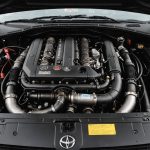The discussion around fuel efficiency is not a new one, especially considering the ongoing global conversations about energy conservation and environmental responsibility. With the continued use of older vehicles, particularly diesel cars, the question that often arises is: how can we enhance the fuel efficiency of these vehicles? Specifically, when considering older British diesel vehicles, there are several methods and technologies that can help improve their fuel consumption and overall efficiency. This article aims to shed light on these methods, providing you with actionable information to make your diesel vehicle more efficient.
Understanding the Basics of Your Vehicle’s Engine
Before delving into the various techniques to boost your car’s efficiency, it is crucial to have a basic understanding of how the engine operates. The engine of your car is what converts fuel into energy, which in turn propels your vehicle. Diesel engines, in particular, are known for their high-efficiency levels, primarily because they burn fuel in more compressed air, which results in a higher energy release.
In parallel : What are effective strategies for reducing carbon emissions in older UK-made vehicles?
However, as your vehicle ages, the efficiency of this process can degrade, leading to increased fuel consumption. Various factors can influence this, such as the condition of your engine oil, the performance of your air filters, and your driving habits.
Maintaining Your Engine for Optimal Performance
A well-maintained vehicle is often synonymous with a fuel-efficient vehicle. Regular maintenance will keep your car’s engine running smoothly, reducing the energy required for it to function and subsequently decreasing your fuel consumption.
Have you seen this : Which child safety features are mandatory in British vehicles and how to check them?
Regular oil changes are crucial to maintain your vehicle’s performance. Old or dirty oil can reduce the overall efficiency of the engine, impairing fuel economy. Therefore, it is recommended to change the oil in your diesel vehicle every 3,000 to 5,000 miles.
Additionally, replacing or cleaning your air filters can also significantly improve your vehicle’s fuel efficiency. A dirty air filter restricts the flow of air into the engine, which can negatively impact the engine’s performance and increase fuel consumption.
Adopting Efficient Driving Habits
Your driving habits can have a significant influence on your vehicle’s fuel efficiency. Aggressive driving, such as rapid acceleration and braking, can increase your fuel consumption by up to 40%. Therefore, adopting more efficient driving habits can help improve your vehicle’s fuel efficiency.
Speed can also affect fuel consumption. Driving at high speeds causes your vehicle to encounter more air resistance, which means the engine has to work harder, thereby burning more fuel. Therefore, maintaining a moderate speed can help improve your fuel economy.
Additionally, reducing the load in your vehicle can also help improve fuel efficiency. Unnecessary weight in the vehicle can make the engine work harder, burning more fuel in the process.
Utilizing Fuel-Efficient Technologies
With advancements in technology, there are now various devices and systems available that can help improve your vehicle’s fuel efficiency. For instance, installing a fuel economy gauge can provide real-time feedback on your driving habits, enabling you to make adjustments that can reduce fuel consumption.
Moreover, using fuel additives can also enhance your vehicle’s fuel efficiency. These additives are designed to clean the engine and improve the combustion process, which can result in improved fuel economy.
Eco-Driving and the Road Ahead
The concept of eco-driving, which involves adopting driving practices that are geared towards reducing fuel consumption and emissions, is gaining momentum. By combining efficient driving habits with regular vehicle maintenance and the use of fuel-efficient technologies, it is possible to significantly enhance the fuel efficiency of your older British diesel car.
Remember, the road to fuel efficiency is not a sprint, but rather a marathon. Small, consistent changes can result in significant fuel savings over time, contributing to a more sustainable and environmentally-friendly driving experience.
Keeping an Eye on Your Vehicle’s Fuel System
The fuel system plays a significant role in the efficiency of your vehicle’s engine. It ensures that the right amount of fuel is delivered to the engine at the right time, which is necessary for optimal performance. A well-functioning fuel system can contribute significantly to reducing fuel consumption and enhancing your vehicle’s fuel economy.
One of the primary components of the fuel system is the fuel injectors. These injectors spray a mist of fuel into the engine, which is then ignited to power your vehicle. Over time, these injectors can become clogged with dirt and debris, leading to less efficient fuel delivery and higher fuel consumption.
Therefore, it is essential to keep your fuel injectors clean. You can do this by adding a fuel injector cleaner to your fuel every few thousand miles. This additive will help remove any built-up deposits in your fuel injectors, ensuring that they continue to function efficiently.
Another key component of the fuel system is the fuel filter. The fuel filter removes impurities from the fuel before it reaches the engine. A dirty or clogged fuel filter can restrict the flow of fuel to the engine, causing it to work harder and consume more fuel.
Therefore, it is recommended to replace your fuel filter every 20,000 to 40,000 miles, depending on your vehicle’s make and model. This can help maintain optimal fuel flow to the engine, enhancing its efficiency and reducing fuel consumption.
Tuning Up Your Vehicle’s Air Conditioning
Air conditioning can be a significant drain on your vehicle’s fuel efficiency, particularly in heavy duty vehicles. The air conditioning system uses power from the engine to cool the air, which increases fuel consumption.
While it might not be realistic to avoid using your air conditioning entirely, there are ways to reduce its impact on your fuel efficiency. One method is to use your air conditioning sparingly, only when it’s necessary. This can help reduce the load on your engine, leading to improved fuel economy.
Additionally, regular maintenance of your air conditioning system can also help improve its efficiency. This includes replacing the air filter regularly and ensuring the system is properly charged with refrigerant.
Reducing the use of your vehicle’s air conditioner, especially at high speeds, can also help improve fuel efficiency. At high speeds, the air conditioning system has to work harder to cool the air, which can lead to increased fuel consumption.
Remember, a little can go a long way. These small changes in your air conditioning habits can lead to noticeable fuel savings over time.
Conclusion: From Old to Gold – A More Eco-Friendly Drive
Enhancing the fuel efficiency of an older British diesel car is not just about saving money on fuel prices. It is also about making a conscious effort to reduce our carbon footprint and contribute to a more sustainable future.
From understanding your vehicle’s engine, maintaining it for optimal performance, to adopting efficient driving habits, and utilizing fuel-efficient technologies – each step brings you closer to your goal. By paying attention to your vehicle’s fuel system and tuning up your air conditioning, you can significantly improve your vehicle’s fuel efficiency, making your old British diesel car a more eco-friendly drive.
The road to fuel efficiency might be long, but it’s worth the journey. As you adopt these practices and see the impact on your vehicle’s fuel efficiency, you will not only save money but also make a positive contribution to the environment. And that’s a journey worth embarking on. Remember, fuel efficiency is not achieved overnight, but with consistent efforts and changes, your old diesel car could very well become a model of fuel savings and environmental responsibility.










